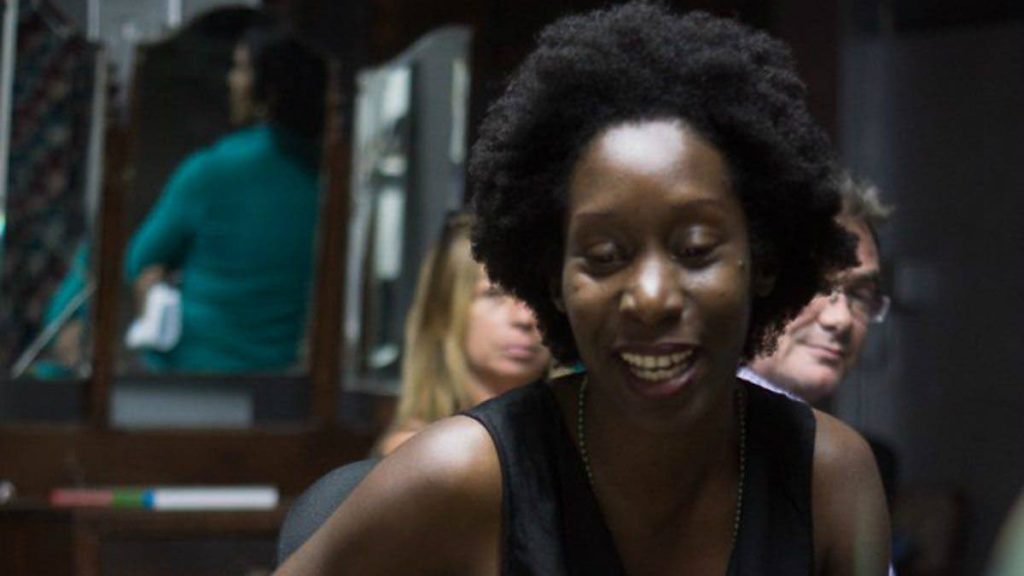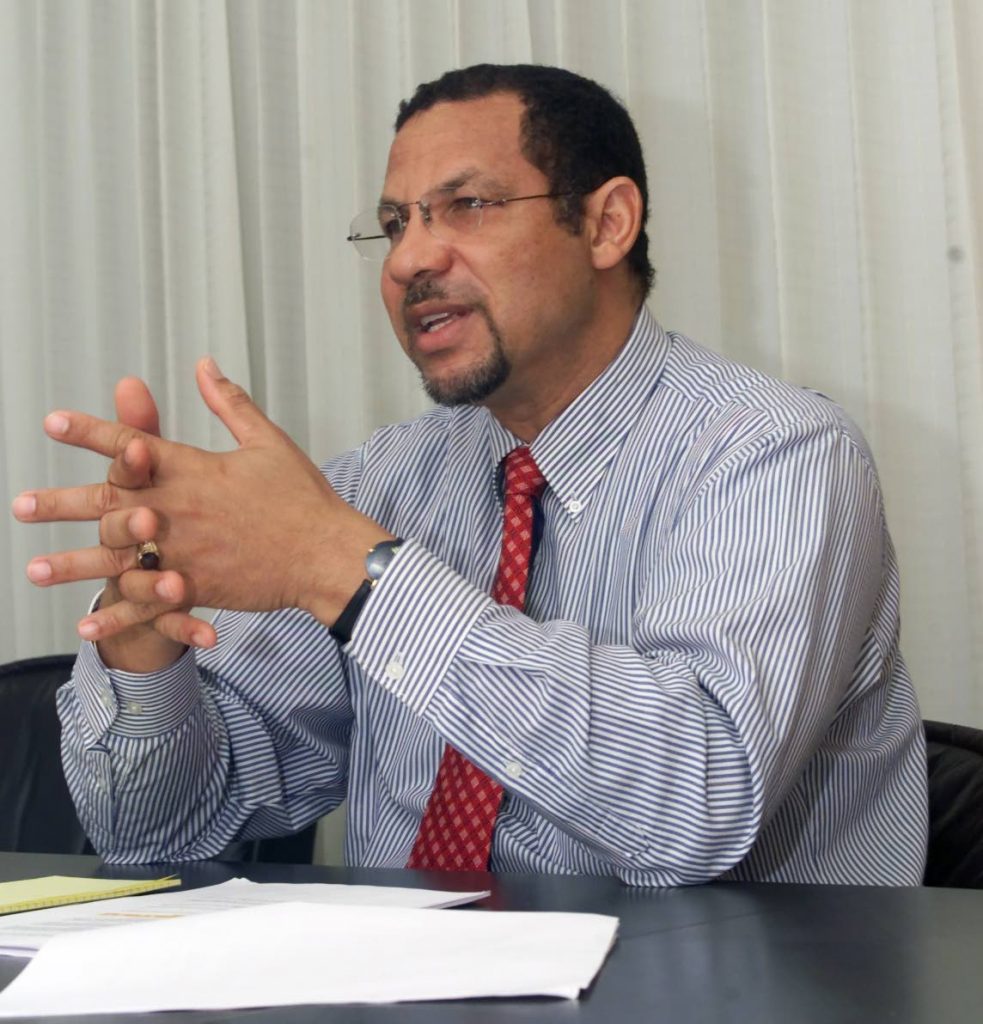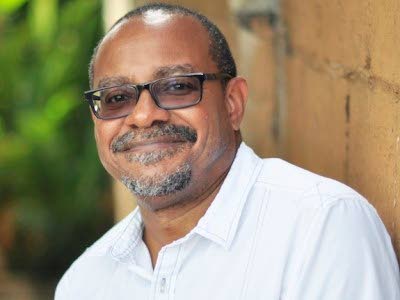An Equal Place?

SHEREEN ANN ALI
PART I OF TWO
IS TT a fair and just society? Or do our laws and our grab-bag of customs and beliefs create an inherently unequal space? To put it another way: do TT’s laws and traditions undermine the promise of equality in our anthem?
This was the theme of some spirited discussion at the May 2 morning session at the Bocas Lit Fest, titled An Equal Place, at the Old Fire Station at the National Library, Abercromby Street, Port of Spain.
The talk event spanned issues of ethnicity, power relationships and perceived inequities in some of TT’s civic institutions that are supposed to exist for everyone’s benefit.
Poet, gender-rights activist and Newsday columnist Colin Robinson chaired the ambitiously wide-ranging event, which was not a formal debate but rather a public conversation and expression of many at times conflicting ideas related to equal rights for all.
Feature speakers were accountant Mariano Browne, a former trade minister; attorney Sophia Chote, a former judge and current independent senator in Parliament; “jouvayist” Attillah Springer, an indigenous culture advocate and an opinion columnist on many social issues; and public affairs journalist Dr Sheila Rampersad, who heads the Media Association but who spoke on her own behalf as a citizen, not as a MATT representative.
All the speakers have actively contributed in the TT mass media to discussion on a range of civic issues ranging from the impacts of political policies to the challenges of postcolonial cultural identity.
The Oxford dictionary defines “tradition” as the transmission of customs or beliefs from one generation to the next. TT’s traditions include its laws, politics, the country’s diverse cultural and moral values that influence people’s behaviour and expressions, and the legacy of a chequered colonial history of oppressive, divisive race relationships.
TT traditions also may include the presence, absence or co-existence of a sense of committed public service alongside a sense of uncaring selfish materialism. Yet another tradition is the country’s apparently endemic organisational inefficiencies across several public institutions – even when they may want to get things right, at times it seems existing systems are set up to frustrate them. For instance, Yvonne, a member of the public, shared that it took her five years to renew her passport – and each of the five officials she dealt with told her a different set of requirements. So TT has some bad traditions as well as some good ones. All of this was grist for discussion.
Springer began by stating that our systems don’t work for us. She explained that she defines herself as a “jouvayist” because of her participation in the Carnival ritual of J’Ouvert, which for her means the darkness before dawn when J’Ouvert players may confront many issues, including matters related to their history, personal demons, loves and hates. So she uses “jouvay” as a metaphor and as a living communal rite for the process of self-searching, recognition/confrontation of problems, therapeutic self-healing, and liberating self-expression; “jouvay” rolls them all into one.
The implication from Springer’s example could be that just as an individual J’Ouvert player may express deeper issues through role play or through releasing energies as disguised truths or masked characters, so too the society as a whole needs to confront or at least try to express its collective issues and identities as a prerequisite for meaningful actions to build a better reality.
Springer said people face many challenges today when they try to redress the violence she said TT society inflicts on them and on the natural world. Before considering how to make TT a better place, we must first acknowledge that the society was born in a very violent, unfair way. “We try to put plasters on colonial sores, and the plasters can’t work.
“I am most concerned that we are trying to find answers without considering the question: what is development? What does development mean when the rest of the world is saying that we are in a climate crisis, but our prime minister is asking us to pray for more oil?”
Springer asked about the human cost of being a small island with a big gas-based industry, which she suggested has affected TT in some profound ways – for example, in cultural products, on the roads, and in the education systems.
Next up was Mariano Browne, who said the people of TT have to start building a better society, with the challenge being to define what “better” specifically means. He noted while economic decisions should be based on rationality, in TT things are all too often decided on the basis of emotions or identity or race.
He said all over the world, the colonial experience has been about immigration and sharing space, about harnessing an amalgam of people to an economic purpose. Of TT’s history, he said: “We removed a (colonial) power structure but left certain things in place.” A way now has to be found to make the society more equal, and to improve the situation in which we find ourselves, he said.

Browne asked about the forces that go into the making of any culture. All postcolonial countries have the challenge of creating a nation in ways that are different from how the more powerful nation states historically built themselves, he said. The nations which colonised this one asserted and defined themselves through strife, force, and warfare; they fought amongst other European countries, fought among themselves in civil wars and revolutions, and fought against peoples in other parts of the globe, he noted. In the wake of all the fighting, differing systems emerged to make societies function, he said.
Browne said one way to define culture is as a set of rules that people are willing to live by. Alluding to TT’s J’Ouvert, he said notions of licentiousness in darkness exist in TT, notions which are not about following any set of rules or procedures but which are more about a kind of enjoyment and destruction rather than about creation. He observed that Carnival culture is often ephemeral and disposable: you make a costume, then you throw it away.
“That sense of impermanence affects our very being, our essence. And our response to it has been anything but rational,” he said, drawing parallels between superficial/impermanent aspects of folk culture and superficial or cavalier attitudes in society and in politics.
TT society may operate not on a basis of economic rationale but of social rationale by people making choices that make different groups feel better, suggested Browne, citing the behaviour of populist political parties such as the PNM and the UNC and suggesting they are rather similar in lacking any underlying unique political philosophy driving their actual behaviour to make the whole of society more equal or better. He suggested to build an equitable society TT needed to go beyond tribal identities while also recognising people’s unique differences. At the same time, nation-building means striving for an equality of opportunity for all, he said.
“Perhaps that has been the greatest difficulty because we (economists/business leaders) do not speak of success in those terms. Our definitions of success from an economic perspective are about numbers and statistics: those are easier to handle.” He said literature helps to define the language for what people are experiencing or searching for; and too often, he commented, we essentially find ourselves distancing ourselves from the objectives we should be searching for.

Chairman Robinson asked Browne how to tie ideas of development economics into notions of equality and a better society.
Browne said betterment was about two things: what the State does, and personal responsibility. “And one of the difficulties in our culture…is that we don’t accept personal responsibility. And that acts as a measure of historical responses to our not buying into the system; we don’t see the system as part of ourselves.”
He commented that most TT people see themselves as second-class citizens unable to influence the process of positive social change in any way. But that is where making a better society must start from, he said.
He drew the example of the current water issues. Noting that instead of a national issue, it has recently devolved into an issue of town versus country, and varying party loyalties, he said the real economic issue underlying accessible water for all is that no one pays the right price for water. A decision decades ago for universal metering –you pay for what you use – was never universally implemented. Pt Lisas area entities and some other businesses are metered, but the rest of the country is not, he said. In addition, people are paying archaic rates for water, he said. So the institution managing water resources is in deficit by $2 billion every year preventing it from functioning well.
Browne also mentioned climate change, saying TT has not yet begun to address this critical issue in a rational, national fashion, instead continuing to operate from the point of view of disenfranchised groups.
Continues tomorrow


Comments
"An Equal Place?"